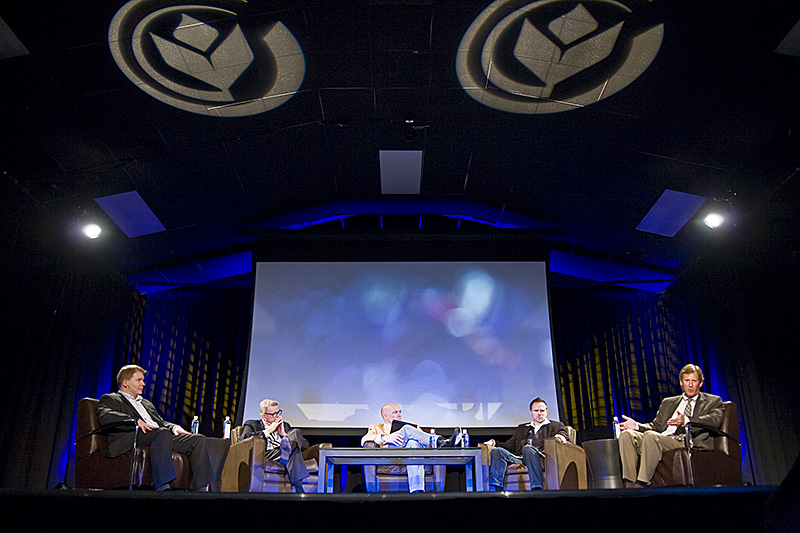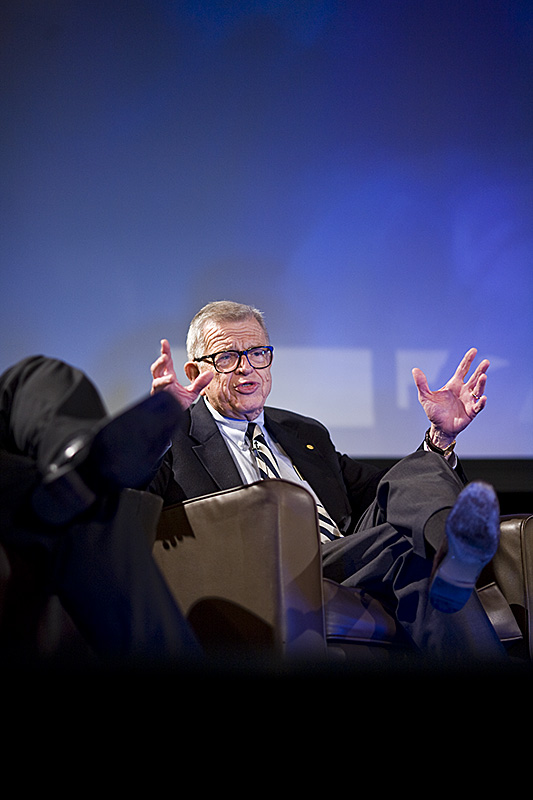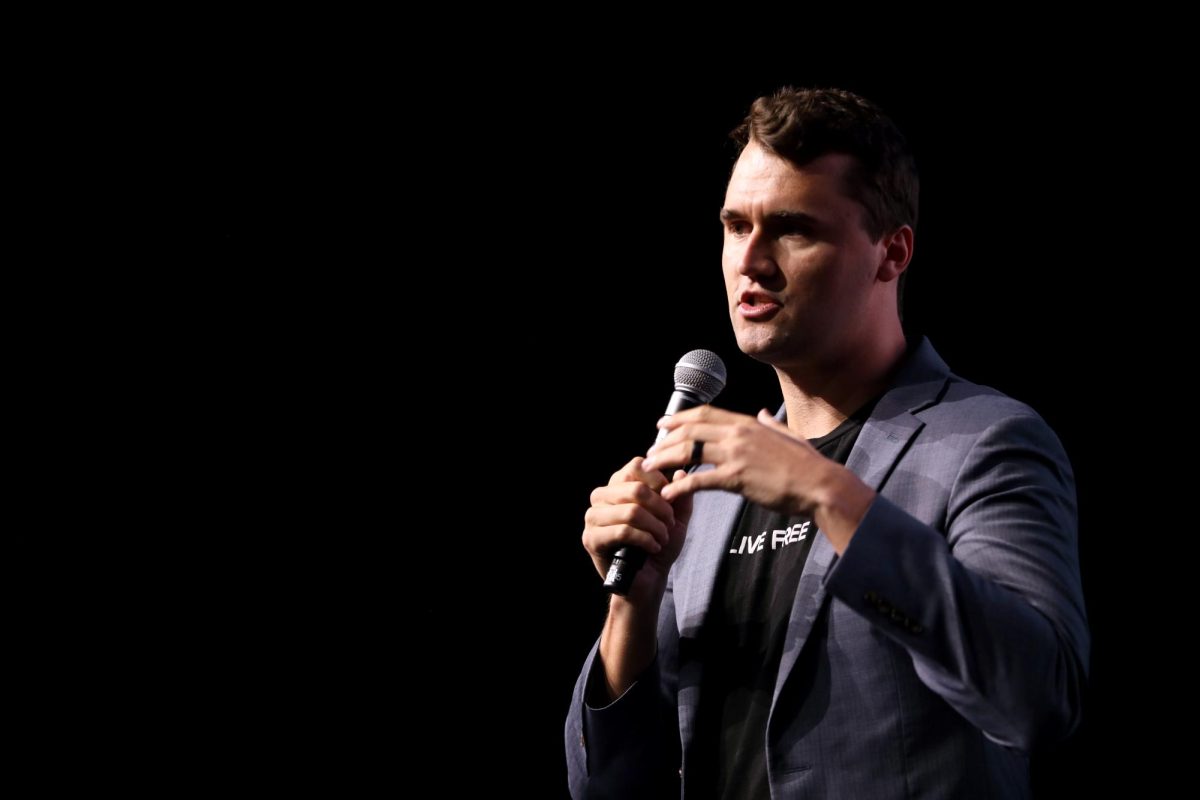“Do the Right Thing,” an event hosted at Biola University on Saturday, Feb. 5, was the first in a tour promoting a new DVD series on ethics.
Colson and expert panelists visit Biola
Brainchild of Chuck Colson, founder of the 35-year-old ministry Prison Fellowship, the “Doing the Right Thing” DVD series and tour claims to seek to cultivate virtue and raise the standard of ethics in society as a whole.
Moderated by KKLA afternoon talk show host, Frank Pastore, Saturday’s seminar featured speakers who presented individually and as a panel. In addition to Colson, panelists included Scott Rae, professor of Biblical Studies and Christian Ethics at Talbot and contributor to the DVD series; Sean McDowell, graduate of Philosophy from Talbot School of Theology; and John Stonestreet, executive director of apologetics program Summit Ministries.
Tweeting suggested but not employed
During the panel, Pastore encouraged attendees to “tweet-in” questions, which he could read from an onstage monitor, but no time was given for any questions. Instead, the entire panelist discussion centered around the question, “What can we do today?”
Ethics panel attracts diverse audiences
While 40 percent of the attendees were students, McDowell purposefully addressed the pastors and parents present.
“We absolutely have a responsibility to the younger generation,” McDowell said.
McDowell addresses objective and subjective truths
McDowell’s presentation, “The Roots of Moral Authority,” broke down the definitions of objective, or external, truths and subjective, internal, truths. He, and other speakers, proposed that America’s relativistic culture confuses the two, leaving people to believe that moral questions are not questions of objective truth, that is, truth independent of the individual.
The Biola alum, now a Christian apologetics and worldview speaker, author and educator, summarized his message by saying, “If you want to know what someone believes, it’s not in what they do or what they say but in how they want to be treated.”
Sophmore Onalee Ranson agreed with McDowell’s statement.
“People will say and do whatever will make them look good, get votes, or further their own personal aspirations, but the second you start to encroach on their God-given rights, they’ll let you know what they really think,” Ranson said.
Ranson said she attended the event to gain “a new perspective on how to reach people.” This corresponded directly to Colson’s quote by Francis Schaeffer: “We have to act like missionaries to our own culture.”
The importance of ethics education
David Schiller of Torrance, Calif., said he recognized the value of instilling ethics, and applauded Biola and the event’s emphasis on educating in ethics.
“The generation of students out there who are going to be our leaders in the future, they’re not hearing this message [on ethics],” Schiller said, contrasting Biola’s environment with the picture of university life painted by the movie, “The Social Network.”
Schiller cited Stonetree’s presentation as particularly poignant. Stonetree covered the question, “Is the return to virtuous living possible?”
“If you’re at the edge of a moral abyss, the most progressive way forward is actually backward,” Stonetree said.
Event emphasizes strengthening Christian worldview
Much of the seminar revolved around the advancement of a Christian worldview.
Biola president, Barry Corey said he hoped that the focus on ethics “might restore the Gospel of the Kingdom and equip believers.”
Pastore proposed the challenge of the day was to “lift our standard” corporately.
When registering for Saturday’s seminar, student Albert Cheng sensed this vision aligning with his own.
“My vision is to see Christian worldview guiding and influencing every sphere of society: education, government, economics, family,” said Cheng, who is pursuing a Masters in Education.
The event, he said, encouraged and inspired him toward his work in advancing a Christian worldview.
Ethics discussion not just for Christians
Nevertheless, the apologists persisted that it is not about setting Christianity out to oppose culture.
“It’s because we’re for the world that we’re taking a stand,” Stonetree said.
Pastore emphasized that the conversation “is not because we’re right… [This] shouldn’t motivate us to arrogance but to compassion.”
The DVD series also claims to avoid religious-bias. Produced with Princeton University’s campus and faculty, “Doing the Right thing” offers a diverse range of perspectives on ethics in government, science, business and family life. Offered as a tool to promote virtue, Colson insisted that the ethics of “Doing the Right Thing” is not about religious banter.
“It’s much deeper than that,” Colson said. “It’s how to be a good human being.”








